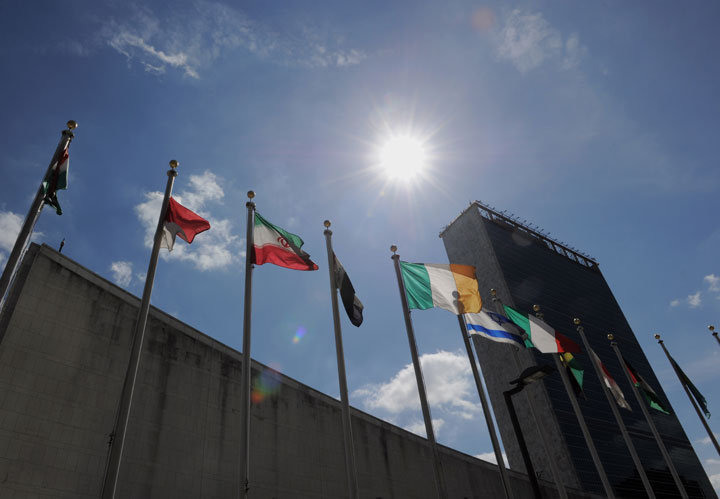Canada was one of 38 nations that opposed a United Nations resolution on Thursday that will kick-start negotiations on a treaty to ban nuclear weapons.

The vote was held by the UN disarmament and international security committee, and the resolution won the support of 123 countries — enough for it to pass. Another 16 nations abstained.
Specifically, the resolution will “convene in 2017 a United Nations conference to negotiate a legally binding instrument to prohibit nuclear weapons, leading towards their total elimination.”
Among the dissenting voices on Thursday were the major nuclear-armed nations and their allies, including the United States, Canada, Russia, Israel, Australia, France, China and the United Kingdom.
WATCH: North Korea announces successful 5th nuclear weapons test

Robert Wood, the U.S. special representative to the UN’s Geneva-based Conference on Disarmament, told the UN in an address on Oct. 14 that “regional security” could be threatened by a global disarmament plan.
“How can a state that relies on nuclear weapons for its security possibly join a negotiation meant to stigmatize and eliminate them?” Wood said.
The U.S. is not expected to participate in the disarmament talks whenever they take place.
READ MORE: Could North Korea’s nuclear missiles reach Canada?
In a statement sent to Global News on Friday, the office of Foreign Affairs Minister Stéphane Dion did not directly address Canada’s “no” vote on the treaty resolution, but noted that Ottawa has taken other “real, tangible and workable steps” toward disarmament.
“Just last night, Canada marshaled 177 nations in support of a universally recognized step towards the future we all seek: an agreement to work towards a treaty banning fissile material, a critical component of nuclear weapons,” wrote a spokesperson for Dion’s office.
“Canadians can be proud that their Minister of Foreign Affairs, their government, is leading the charge.”
The fissile material treaty has the support of both nuclear weapons states and non-nuclear weapons, noted Dion himself in a prepared statement.
“Future negotiations on a fissile material cut-off treaty will not be easy. However, progress on (the treaty) in the near term is possible, and Canada will spare no effort to ensure its success,” he wrote.
- ‘Shock and disbelief’ after Manitoba school trustee’s Indigenous comments
- Invasive strep: ‘Don’t wait’ to seek care, N.S. woman warns on long road to recovery
- Grocery code: How Ottawa has tried to get Loblaw, Walmart on board
- ‘Super lice’ are becoming more resistant to chemical shampoos. What to use instead




Comments